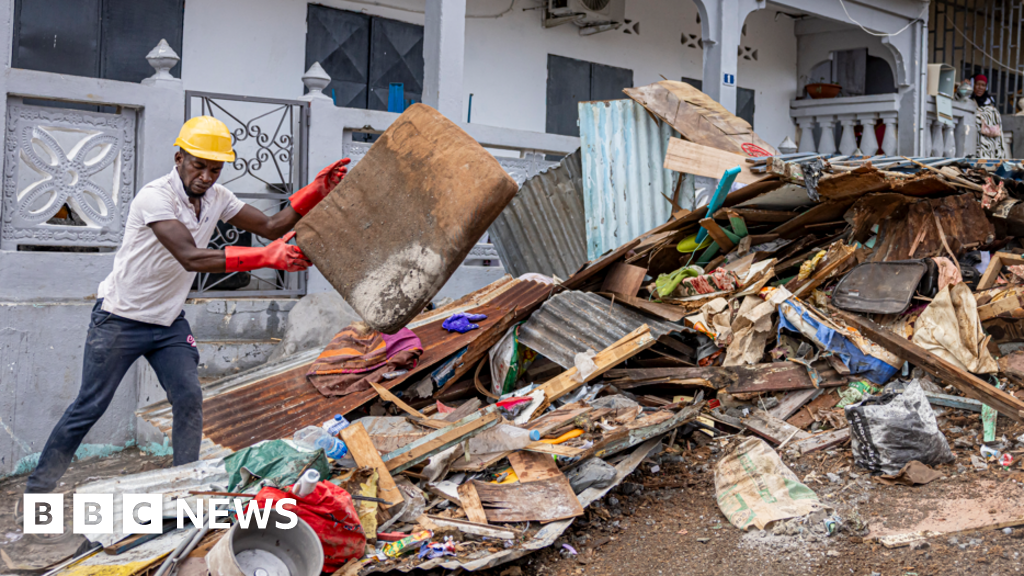THE highly controversial boss of Saudi Arabia's pricey NEOM project has been sacked after allegedly threatening to bury a worker in the desert.
Nadhmi Al-Nasr, head of the infamous Saudi mega scheme, has been heavily criticised in the past after allegations of abuse and an aggressive management style have all been revealed.
The final blow to his reign came when a worker claimed he had been threatened by the chief.
Al-Nasr is accused of telling the employee that he would have him buried in the desert before urinating on his grave, report the Wall Street Journal.
NEOM are yet to explain why Al-Nasr has left the project but sources told the WSJ he was sacked.
The 68-year-old CEO had been working under Crown Prince Mohammed bin Salman on the futuristic city since 2018.
read more in Saudi Arabia
But his departure marks the latest in a string of major blunders in the Kingdom as NEOM's lights appear to be drastically dimming.
The flagship project has already been scaled back, but the biggest issues come from a looming a series of controversies that has raised serious questions about its feasibility and ethical foundations.
More than 21,000 workers have died in just eight years since the Vision 2030 project was launched, according to shocking new statistics.
Staff have complained of feeling like "trapped slaves" and "beggars" in the country amid serious allegations of missed payments, working illegal hours and human rights violations.
Many of these issues have been linked back to several Saudi bosses running the unbelievable projects with Al-Nasr often at the heart of the accusations.
He has often refused to address any of the complaints lobbied at him by workers or the press.
Inside Saudi Arabia's plan for £3.8bn seaside resort built on blood as vid shows work underway for Dubai-style hotspot
Even refusing to speak to journalists about the progress and issues revolving around the trillion pound gig.
Many close to the project were reportedly shocked Al-Nasr had even managed to last as long as he had.
He has now been replaced by Aimen Al-Mudaifer - the former head of local real estate at the Saudi Public Investment Fund.
The company said NEOM is entering "a new phase of delivery" as they announced his arrival.
In a statement they said: “As NEOM enters a new phase of delivery, this new leadership will ensure operational continuity, agility and efficiency to match the overall vision and objectives of the project."
Despite the setbacks, accusations and changing leadership , the first part of the NEOM project has been completed.
Last month, it was announced that a luxurious Red Sea resort has opened its doors to the world's elite with guests already flooding in.
A man-made island, known as Sindalah, has its own restaurants, ultra-luxurious hotels and an 86-berth marina - ready for rich guests to walk, or sail, through its doors.
NEOM has described Sindalah as its "first physical showcase" that looks to "serve as NEOM's gateway to the Red Sea".
Dubbed the "inaugural destination", Sindalah is spread over a whopping 840,000 metres and is set to receive up to 2,400 guests per day by 2028, according to NEOM executives.
Concept pictures of the holiday destination show modern villas with extraordinary ocean views and plenty of greenery - but a dark underbelly of the island reveals a place built on bloodshed and slaves.
Crown Prince bin Salman, has been at the forefront of trying to develop the oil state into a global tourism hub.
He has splashed trillions to create his Saudi Vision 2030 project which features complexes such as the flagship NEOM which includes fantasy ideas such as The Line.
Despite the luxury plans for the ambitious builds human rights groups have expressed many concerns over the massive construction plans.
With fears that migrant labour will continued to be exploited and many locals will become displaced.
Saudi Arabia has also been hit with serious allegations claiming a significant number of migrants working in construction have disappeared.
Emerging reports allege that as many as 100,000 migrant workers have gone missing during the construction of NEOM.
Another huge issue plaguing the Saudi project is the soaring economical cost.
NEOM was predicted to cost £1.2trillion to build but reports have since claimed it could be closer to the $2trillion mark if built in full.
Dr Frederic Schneider, an independent consultant on post-oil economic transitions in the Gulf region, told The Sun that Vision 2030 and NEOM were seen as overly ambitious and nearly impossible to achieve from the very start.
He said: "When Vision 2030 was first announced there was a lot of talk about that it was hugely ambitious.
"Many people from the start said, 'okay, this is not only ambitious, that's almost impossible'."
This financial burden is compounded by the difficulty in attracting foreign investments, as potential investors are wary of uncertain returns.
The economic risks are compounded by global uncertainties and shifting economic trends that could undermine NEOM’s long-term sustainability.
If the project fails to live up to its lofty goals, it risks becoming a costly white elephant — a futuristic ghost city in the desert.
The pursuit of these "white elephant" projects, he said, reflects a desire for the Crown Prince to leave a lasting legacy, but they may ultimately prove to be economically and politically costly.
Inside the NEOM megaproject

NEOM is set to be a Jetsons-style ultra-modern metropolis in contrast to the other very conservative parts of the desert kingdom.
Backed by Saudi's £400billion Private Investment Fund - the group which bought Newcastle United - the plans for NEOM are so ambitious that some of the technology doesn't even exist yet.
Planning docs show the city will have flying taxis - a vehicle depicted in science fiction films such as Blade Runner and Back to the Future II.
The most striking thing about NEOM is a mirrored megastructure called The Line - a 110-mile, 500m tall and 200m wide mirrored building that will connect NEOM to the rest of the kingdom.
The latest concept images for The Line appear to show a ship travelling through the linear smart city.
Located in the Tabuk Province and facing Egypt across the Red Sea, the futuristic project will become part of the new urban area of Neom.
Alongside the new concept images, Neom's social media account claimed the 106-mile metropolis will "redefine liveability" and "transform how we live".
A constant wall of mirrors are also set to reflect the sky, surrounding desert and water for the ambitious development.
Designers say this mirrored effect will give off the illusion of invisibility - and therefore makes the city vanish for ships approaching from a certain angle.




















 English (US) ·
English (US) ·